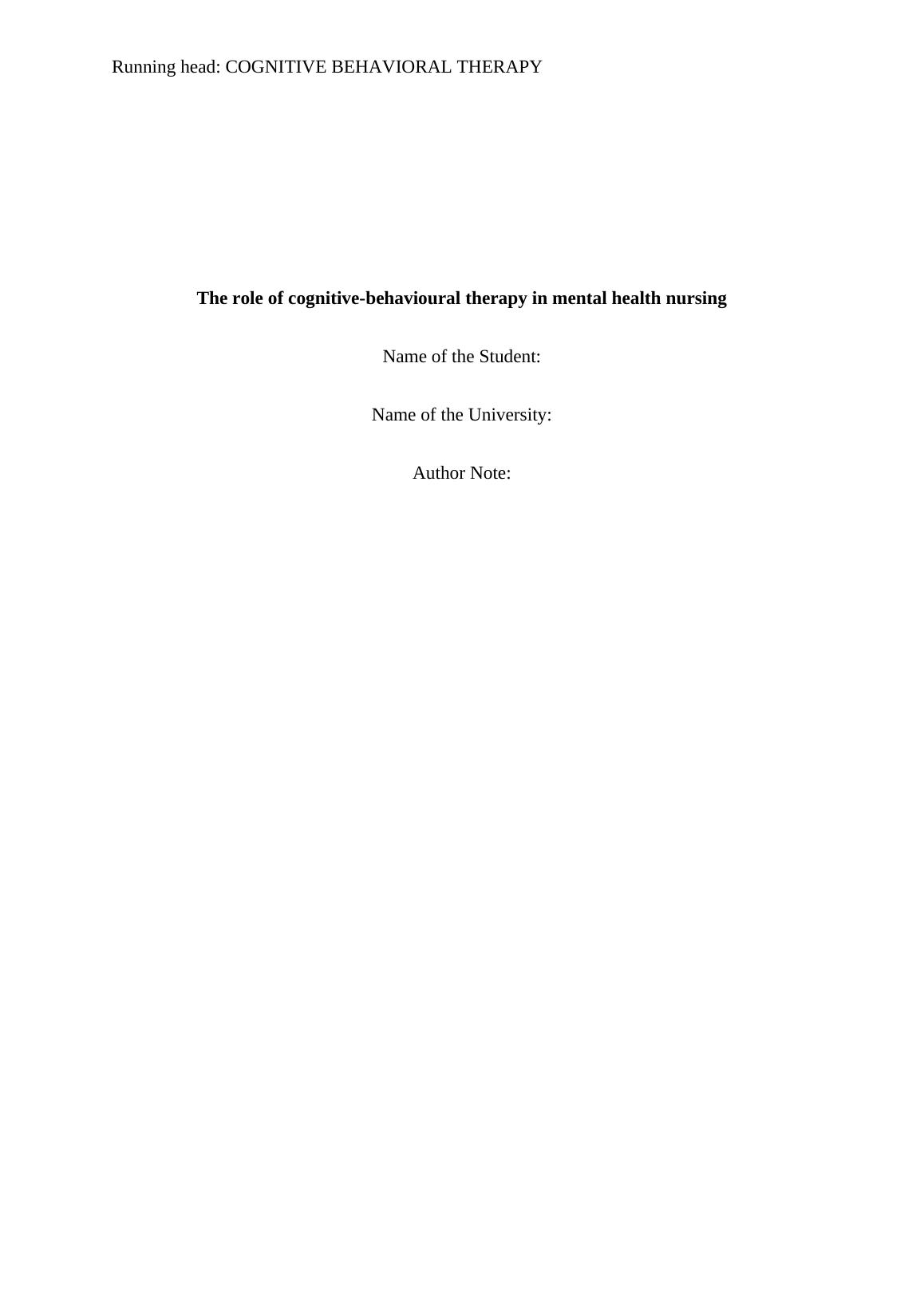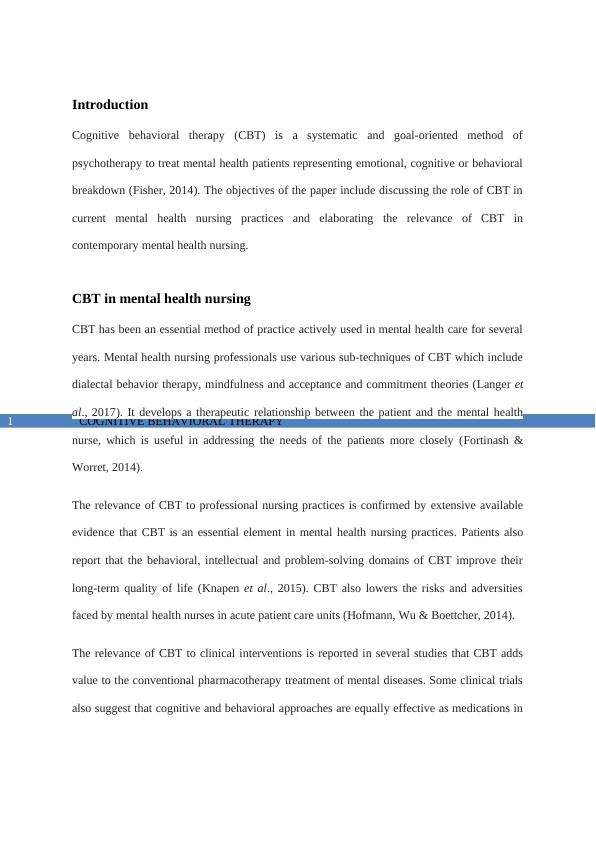Cognitive Behavioral Therapy: What Is It and Who Can It Help?
Deliver a presentation on the relevance of a chosen topic for Mental Health Nursing or critique of 1-2 pieces of literature related to contemporary Mental Health Nursing.
5 Pages1015 Words24 Views
Added on 2022-09-01
Cognitive Behavioral Therapy: What Is It and Who Can It Help?
Deliver a presentation on the relevance of a chosen topic for Mental Health Nursing or critique of 1-2 pieces of literature related to contemporary Mental Health Nursing.
Added on 2022-09-01
ShareRelated Documents
End of preview
Want to access all the pages? Upload your documents or become a member.
Utility and Clinical Effectiveness of Cognitive Behavioural Therapy (CBT) in Treating Common Mental Disorders
|12
|3383
|247
Cognitive Behavioral Therapy Case Study 2022
|8
|1976
|24
Effectiveness of Supplementary Cognitive-Behavioral Therapy (CBT) over Pharmacotherapy for managing Depression
|15
|3477
|280
How Effective is Cognitive Behavioral Therapy
|23
|5098
|24
Effectiveness of Cognitive Behavioral Therapy in Treating Depression in Older Patients with Dementia
|16
|3671
|490
Developing Professional Knowledge and Values in Mental Health Nursing
|12
|4092
|339


